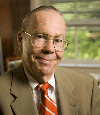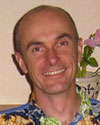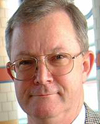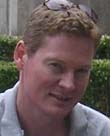ELCF forthcoming seminars - Michaelmas term 2008
Last year, "Engineering for a Low Carbon Future" seminar series was launched, with eight talks by experts from academia and industry, exploring technical opportunities for engineers to contribute to a low carbon future. This year the series continues, with four talks in Michaelmas and four in Lent term.
The series will run generally on every second Wednesday from 5.00-6.00 in Lecture Room 4, and includes speakers from the Department as well as external speakers. The guest speaker in the first term will be Thomas Graedel, Professor of Industrial Ecology at Yale University.
The seminar series is open to everyone in the Department.

Carbon aspects of the cycles of metals - Friday 17 October, Lecture Room 4 (LR4)
Thomas Graedel
Professor of Industrial Ecology - Yale University
Thomas Graedel is the director of the Center for Industrial Ecology in the School of Forestry and Environmental Studies, Yale University. His interests are in the organizing framework for the study of the interactions of modern technological society with the environment and in enhancing industrial ecology. His most recent research focuses on studies of the stocks and flows of materials in the industrialised society, especially in very large cities and in environmentally sensitive regions. This work explores aspects of resource availability, potential environmental impacts, opportunities for recycling and reuse, and resources policy initiatives.

Energy plans that add up - Wednesday 29 October 2008, Lecture Room 4 (LR4
)
David MacKay
Professor of Natural Philosophy - University of Cambridge
It's very difficult for a country like Britain to live on its own renewables. So how do we make a sustainable energy plan that adds up?
David MacKay obtained his PhD in Computation and Neural Systems at the California Institute of Technology. His research interests include reliable computation with unreliable hardware, and communication systems for the disabled. He's written a textbook on 'Information Theory, Inference, and Learning Algorithms' (2003, Cambridge). He's currently writing another free book on `Sustainable Energy - without the hot air.' (www.withouthotair.com)

Britain's building stock: a carbon challenge - Wednesday 12 November 2008, Lecture Room 4 (LR4)
Michael Kelly
Professor of Technology - University of Cambridge
Michael Kelly has held the position of Prince Philip Professor of Technology since September 2002. He is also a Fellow of Trinity Hall, a Visiting Professor at the University of Surrey, and recently the Cambridge Executive Director of the Cambridge-MIT Institute. Since July 2006 he has been both part-time Chief Scientific Advisor to the Department for Communities and Local Government, and non-executive director of the Laird Group plc. His research interests include examining the manufacturability (or otherwise) of whole families of devices that rely on tunnelling effects and on hot electron injection, and the use of ion-implantation in fabricating novel devices in semiconductor multilayers.

Energy efficiency opportunities from heat pumps - Wednesday 26 November 2008, Lecture Room 4 (LR4)
Alex White
Senior Lecturer in Thermofluids - University of Cambridge
Alex White is a Senior Lecturer in Thermofluids at Cambridge University Engineering Department. He is also a Fellow and Director of Studies at Peterhouse. Alex read Engineering at King's College Cambridge between 1985 and 1988, and remained at King's for his PhD. After four years of post-doctoral research (in Cambridge, Lyon and Toulouse) he took up a lectureship at the School of Engineering in Durham. He returned to Cambridge in 2000 where he is now a member of the Energy Group. Alex's research interests include two-phase flow (especially vapour-droplet flows), the thermodynamics of power generation, Computational Fluid Dynamics, and heat pumps.

